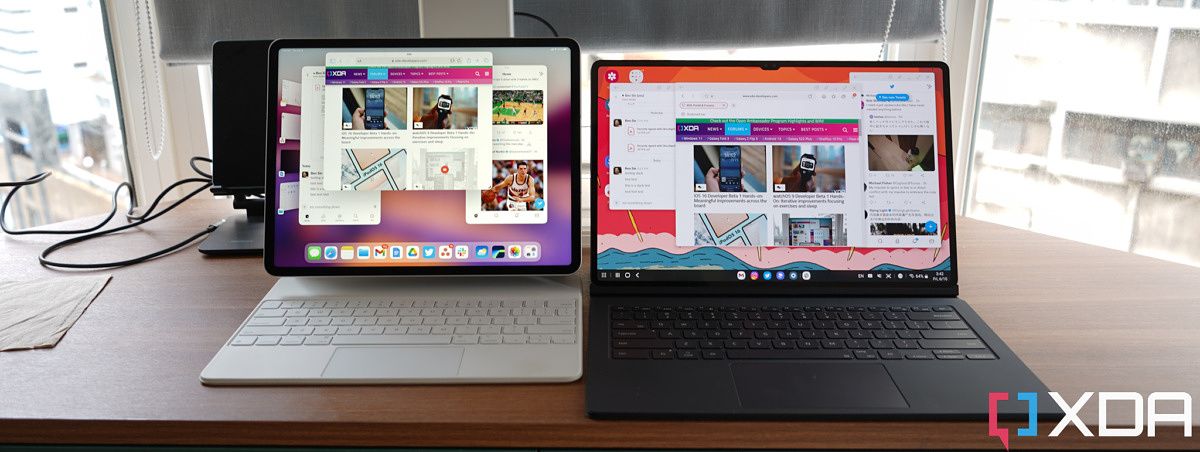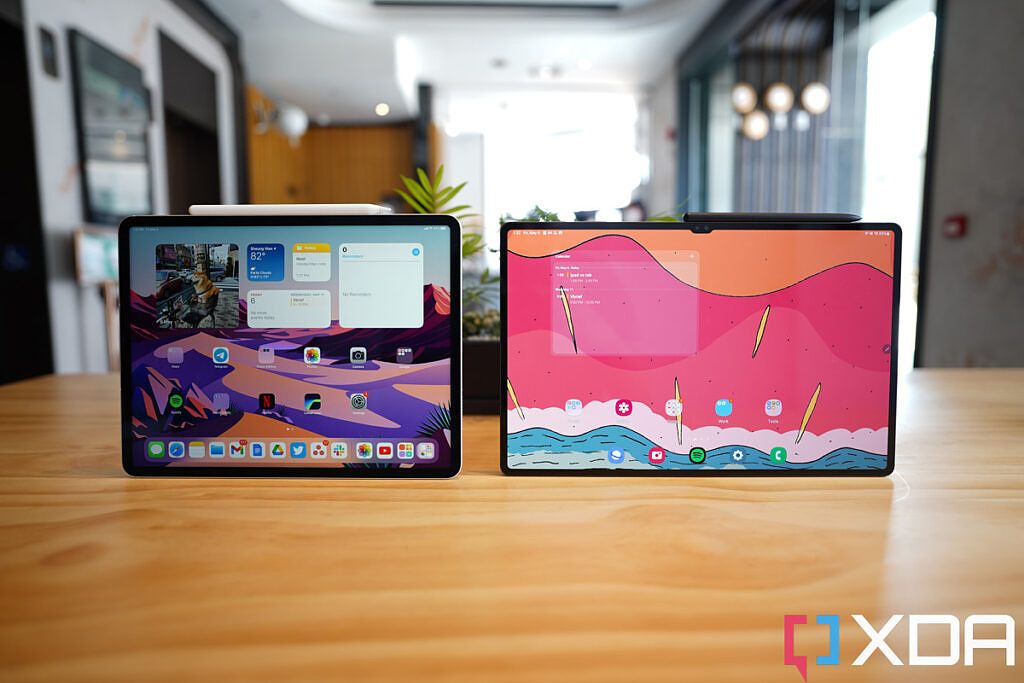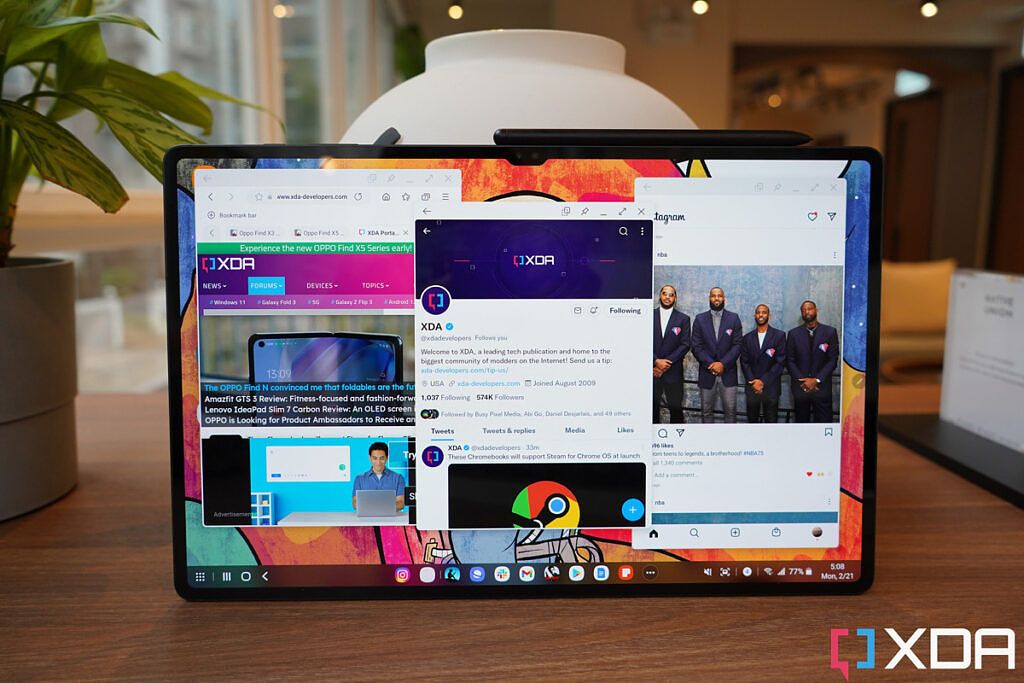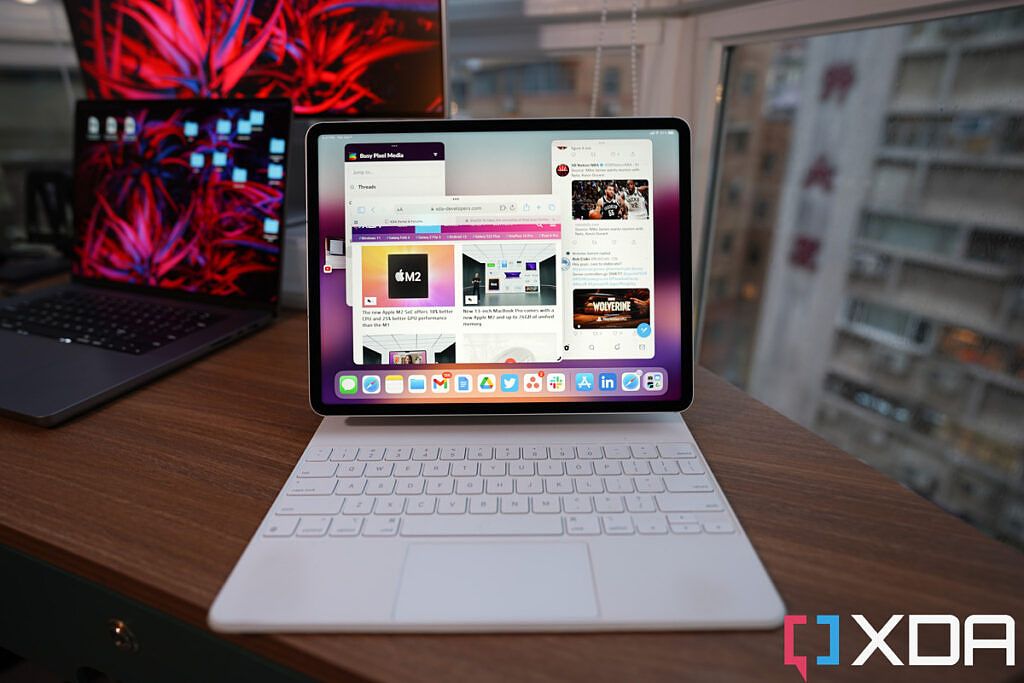It is very debatable whether iPhones are actually the best smartphones, or if Macs are better than Windows machines. But when it comes to tablets, even the biggest Apple haters (or Windows/Android fans) have conceded that the iPad is indeed the best tablet.
This has as much to do with the competition failing as Apple being good at what they do. Windows is so absolutely terrible as a tablet that it's not even worth talking about, really -- let's just focus on Android tablets instead. Why have Android tablets been inferior to the iPad? It's certainly not hardware, because companies like Samsung, Xiaomi, and Huawei have proven they can make premium hardware every bit as good as Apple.
The biggest problem with Android tablets is that they run Android
The issue instead lies with software: Android itself isn't well optimized for large screens in landscape orientation, but the problem is even worse with Android apps. Most of them are simply not designed to run on widescreens. Twitter is the best example -- if you open Twitter on an iPad, you get a two-pane layout that takes advantage of the larger and wider screen. Open the same app on an Android and it looks ridiculous -- you will often see one tweet stretched across the entire digital canvas.
Twitter on iPad (left) and on an Android tablet (right)
This is a perfect example of the "chicken or the egg" problem: app developers don't care to design just for Android tablets because Android tablets are not held in high regard. But until Android tablets get better app optimization, the tablets will always be held back.
Samsung fixing Android for its tablets
Samsung is the exception to the rule, and it got there by realizing the Android tablet app problem and just working to resolve it by itself. For the company's last two tablet series (Galaxy S7 and Galaxy S8), Samsung offers "DeX Mode," a sandbox UI that turns Android into a space resembling a Windows homescreen. And when you open apps, they open in smaller upright rectangular windows that can be resized. This way, Android apps that look stupid on widescreen, like Twitter, can be "forced" by DeX to display in a form closely resembling a slab phone screen.
DeX Mode didn't just alleviate the Android app scaling issue, but it also made Samsung tablets a superior multi-tasking machine. Instead of just opening apps in a locked split-screen grid like in iPads or other Android tablets, DeX Mode allows a Samsung tablet to run three, four, or more windows at once. This, coupled with the awesome hardware of the Galaxy Tab S8 series, means Samsung tablets were actually good. In fact, I enjoyed using the Galaxy Tab S8 Ultra so much that I concluded in my review it was more versatile than the 2021 M1-powered iPad Pro because I could run more than two apps at a time.
Now, if I had to pick a winner, I'd still say the iPad Pro was a better overall tablet because the M1 chip is more capable, and because DeX Mode is ultimately just a band-aid, not a cure for the wound. Until app developers put the same effort into Android apps as they do with iPad apps, the iPad will always operate a bit smoother, with more capable apps. But still, Samsung had at least closed the gap between its tablets and the iPad, which had reigned supreme, untouched for over a decade. And who knows, maybe with more DeX refinement, the next Galaxy Tab Ultra could finally match or surpass the iPad.
The WWDC aftermath
But that doesn't look likely now. Because at this week's WWDC Apple announced major upgrades to iPadOS 16 (the software that will run in virtually all iPads beginning this fall), and the biggest improvement is Apple has essentially built a DeX Mode of its own -- but better.
Called "Stage Manager," this feature allows an M1-powered iPad (right now, that would be the 2021 iPad Pro and 2022 iPad Air) to open apps in resizable windows too. This is something no previous iOS device has been able to do, and it's an immediate gamechanger. Remember: part of the reason DeX Mode exists is to fix a software flaw. Stage Manager doesn't have that burden, it isn't working with badly optimized apps. This will surely allow Stage Manager to operate more smoothly and efficiently than DeX Mode. Heck, even right now in the first developer beta of iPadOS 16 not meant for general public use, Stage Manager is already working arguably better than DeX Mode. Google Docs, for example, has always behaved oddly on DeX, opening documents in entirely new windows. This problem doesn't exist on Google Docs for iPadOS whether in Stage Manager or not.
Apple has essentially built a DeX Mode of its own -- but better
Stage Manager also has a clever window-grouping setup that I find very useful. For example, I can have all my work windows (Slack, Twitter, Safari) in one group, and leisure windows (Instagram, YouTube, WhatsApp) in another, these batch of apps can be minimized into a floating icon stack on the left side of the iPad display, which means I can jump back and forth between two batches of apps with a tap. The animation or speed with which these transitions happen is already buttery smooth on the first beta of iPadOS 16.
Apple just widens its leads again with iPadOS 16, and even more than before
Another huge improvement to iPadOS 16 is it allows M1-powered iPads to expand their homescreen to an external display, which gives me more space to open more windows (you can open up to eight maximum, but realistically, four or five is good enough for me). Samsung's Galaxy Tab S8 Ultra, like literally every other tablet that I know of, can only mirror its screen to another display, not expand.
I work remotely, and at least before Covid, was traveling often for work. Thus I am always on the lookout for the most portable setup that still gives me enough power and screen real estate to work efficiently. I really wanted the Galaxy Tab S8 Ultra to be that machine -- I purchased one myself after returning the review unit to Samsung -- but now that the iPad Pro is offering a superior multi-tasking system with external display support, I have no choice but to jump back to the iPad Pro.
And with the recent news that Apple is working on a larger 14.1-inch iPad Pro, plus the promises to bring more "desktop-class apps" to iPadOS, the iPad Pro (or even the iPad Air) is only going to get better as a real computer replacement. Just as Samsung had closed the gap with a tablet that's almost as capable as the iPad, Apple comes and widens the lead again.




